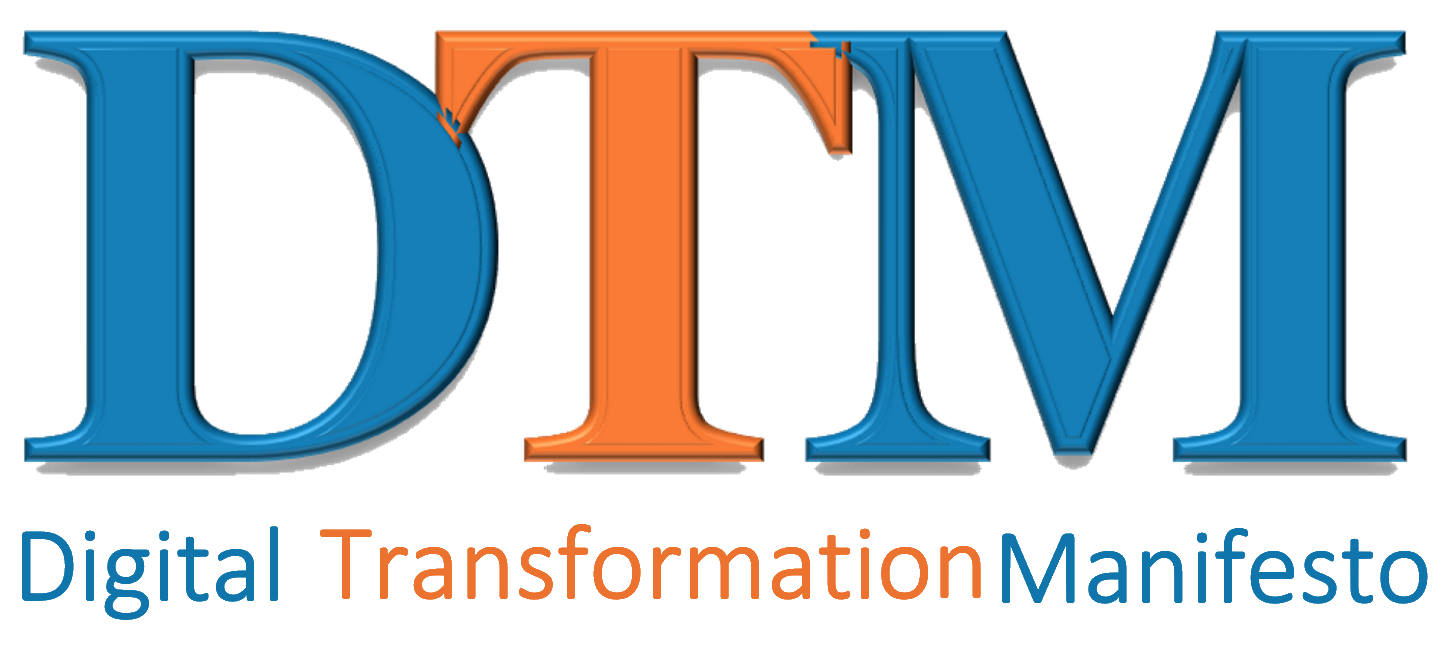This is the last of 8 articles describing the tenets of the Digital Transformation Manifesto. Culture of Empowering Leaders is the seventh tenet.
The eighth tenet of the Digital Transformation Manifesto is, “Ethics are Integral to Our Organization.” Stan Lee, the author of the Spider Man comic, popularized the Peter Parker principle, “With great power comes great responsibility.” Organizations that have achieved sustained growth and performance in the digital era have also created confidence that their actions and motives are rooted in an ethical foundation. The power of their innovation and transformation that was enabled through digital technology are magnified and elevated when their stakeholders and customers are convinced of their ethical behavior. However, when customers begin to doubt that; they quickly move onto someone else for the product or service.
A key element of organizational ethical behavior is establishing and maintaining trust between an organization and its stakeholders. Trust relies on consistency in purpose and the alignment of actions to support that purpose. A characteristic of the digital era is the widespread availability of data and information. An organization cannot sustain a public persona standing for one set of values and in private violate that same standard. The information leaks out, and when it does, it goes viral in a very short time. When an organization says it stands for one set of values and behaves differently, the stakeholders lose confidence in everything else the organization says. We have seen recent examples of organizations “green washing.” This undermined their credibility and impacted their sales and stock price.
But it is not only the external stakeholders who are concerned about ethics in the digital era, internal stakeholders are also a factor. Digital technologies have enabled a global job market and workforce. Many organizations now have virtual “gig workers” who are based around the world. Often these individuals are actively seeking to work for organizations whose values they share. Just as with external stakeholders, when internal employees and associates find that an organization’s actual ethics differ significantly from the public persona, they quickly move onto an organization with which they are aligned. Thanks to the digital technologies that are available, the barriers for an individual to change employers is very low.
A key point to make at this time is that technology is ethically neutral. The digital technologies are available to both highly ethical and highly unethical organizations and individuals. However, ethics are key in the ability to transform. The transformation process often requires an extended time as old habits are retired, and new ones are formed. To change the organization’s processes and systems, many interactions are needed. This is where the ethics of an organization are revealed. Constancy of purpose, a genuine care for customers and employees, and trust in the integrity of an organization are built over time. While it may take months or years to establish the reputation for integrity, that same reputation can be destroyed in a matter of days or hours. If that happens, the organizational transformation becomes derailed.
Ensuring ethical behavior is part of the organizational fabric is necessary in the new environment being created by digital transformation. We have included the tenet that ethics are integral to the organization within the Digital Transformation Manifesto. This is not to say only digitally transformed organizations are ethical, rather it is to say that an organization cannot sustain the challenges associated with the transformation unless it operates in an ethical manner. This tenet addresses the decision-making and communication of the senior management team and all those with authority within the organization.
The eight tenets outlined in the Digital Transformation Manifesto are foundational to an effective organizational transformation. The tenets are neutral with respect to a specific technology. The digital technologies are rapidly changing and new ones are regularly emerging. These tenets transcend the technology. They become core operating principles in digitally transformed organizations.
Digital transformation is a journey. It is a journey that all of our organizations are undergoing. In some cases, it will lead to success and in some cases, it will lead to failure. These tenets are road signs along the journey pointing the way to success. As you prepare to start on the next leg of your organization’s digital transformation journey, we encourage you to adopt these tenets. Become a signatory on the Digital Transformation Manifesto. ![]() And consider joining the Manifesto Working Group where these tenets will be explored in greater detail, and if necessary updated to better guide and serve those who are also making the digital transformation journey.
And consider joining the Manifesto Working Group where these tenets will be explored in greater detail, and if necessary updated to better guide and serve those who are also making the digital transformation journey.
Tag/s:Business TransformationDigital EnterpriseDigital EraManifestoOrganizational Change






Throughout these 8 principles, there is talk of mindset and value; there is talk of ethics and data. The result is a digital transformation manifesto that is not too discrete. After all, “these principles are technology-neutral” and, aside from “data-driven decision making,” there is no trace of a strong correlation with “technology. Because of this, they may have more or less value in different times. Rethink your strategy and practices before you enter into digital transformation? Is it possible? What about introducing slightly a culture of empowered leadership? The latter was mentioned in the previous article, and Yong Zhang was doing this 20 years earlier. And in a period of digital reinvention (a consulting firm sees the post-digital transformation phase as digital reinvention), perhaps data-driven decision making can go to a more robust, automated level? Does the customer and stakeholder experience go to a new level? Will customers even be able to experience the thrill of “doing what they say” – except in a “metaverse”?
In addition, readers may feel that these 8 principles are not very impressive, and there are no high level views or new words to shine a light on. Personally, I feel that perhaps in the early to mid-term of this digital transformation, we also need such “plain and simple is true” principles to guide and sort out all kinds of digital transformation practices, to help enterprises through the competitive digital battlefield, but also to retain the original intention.
But, no matter what, the 8th principle is also the most important, just like the “no evil” principle that has been abandoned by Google, “it doesn’t matter what you lack, don’t lack virtue”. The core is “lack of virtue”, lack of “fear”. When the masses have given up part of their privacy to the public power, and the public power is only thinking of opening the door to their own convenience, once the “digital transformation” assistance, is bound to be a lose-lose situation. After all, the technology is more advanced, the fight is more accurate, “only think, no fight can not be”. In the end, the interests of the masses lose, the delusion of physical open public power is also ultimately difficult to escape the loss of the situation. This is the case with public power, as well as businesses. As long as the heart of the consumer is broken, to redeem it again will require a greater cost and determination before it is possible.
This DTM is not the final version, and there is a possibility of continuous iteration. So it is still quite open. But some people may ask what about “agile”? I think “agile” is already hidden in most of the “principles”, it’s self-explanatory, it doesn’t need to be stressed, it’s become the cultural infrastructure of digital transformation.
Finally, thank you for these 8 presentations. Your language is concise and clear, basically not too many long and difficult sentences, and very smooth. The author’s English is concise and clear, basically not too many long and difficult sentences, and very fluent. It is very suitable for “hard” translators like me. I have also translated all the relevant content into Chinese and kept the original links and reproduced them on my blog. I look forward to more of your articles and practice.
Thank you for your comments. I appreciate the way you identified that these are “plain and simple” truth. Our goal was to be both practical and universal in the application to any industry or organization.
Your comment about Agile is correct. We did not specifically call out that project management approach, just as we did not identify any specific digital technology such as AI, IoT, or Blockchain. That was because we did not want to focus in on one technique. But to your point, Agile shares many of the same principles and in my personal experience, every organization that has achieved even modest success has adopted Agile for a portion of their projects.
I hope you will be joining us in the Working Group as we continue to refine the Digital Transformation Manifesto.